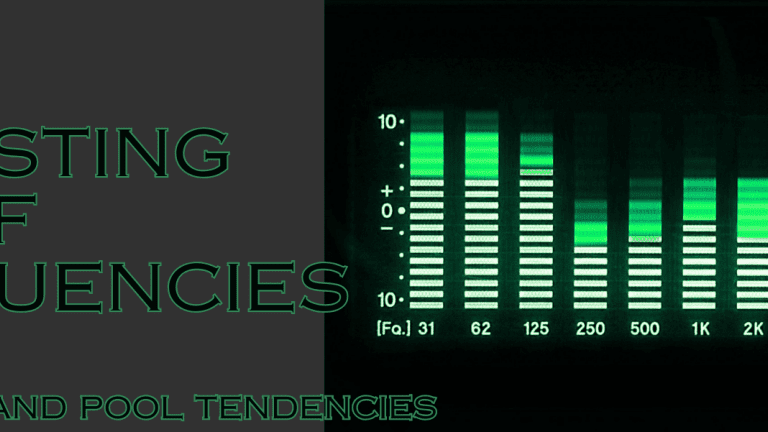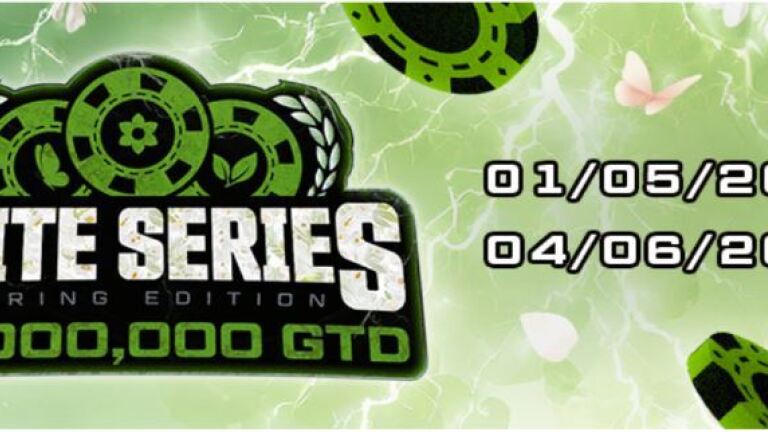What are the insufficient or false reasons for betting on poker?
Let's start real quick by defining why we bet in poker! The players are incentivized to start fighting for the money/prize as blinds and antes are introduced to the game. Each factor, our hand, position, previous actions, etc., gives a mathematical probability of how much of the actual pot we are "entitled". The whole process leads to a stream of betting action; if we would like to simplify, we are making bets based on the possible outcomes of the hand. Therefore, we have two main reasons for betting. First, we have the best hand and are willing to win the most. Second, we have the worst hand, and the only way to win our bets/the pot is by bluffing.
You might say, "Hold on! What about the other cases? I have other reasons for deciding to bet".
Well, my friend, those reasons are the noise. They might be partly true or false reasons, alone insufficient or simply the consequences but not the driving factors of betting.
Let's see what are some of the wrong reasons for betting:
"I bet for protection here."
"I bet against the flushdraw."
"I don't want to face a bet myself on the next street."
"I bet because I have two pairs."
What is wrong with these reasons? What is missing? Well, first and foremost, the context. For example, betting for protection is an insufficient reason to bet. Consider the following example:
We have ♣️J♠️T; we open from the BTN 2,5bb, and only the BB comes along. The flop comes ♠️K♠️J2♦️, and you decide to range bet for a 33% size and the BB calls. The turn is the ♠️3, and you can bet again. Would you second barrel in this spot? Will your hand get protection? Against some of the possible hands, BB could have here, sure. An ace-high, QTs, or pocket 55 have some outs against your hand. Still, it's a significant blunder to bet your hand; many more hands already beat you: all Kx, better Jx hands, etc.
Another example is when you open 3bb from the SB with ♠️A♠️K and the BB calls. The flop comes ♣️4♣️5♦️6, and you decide to bet against the flushdraws you are ahead of now. This doesn't seem right in so many ways that it almost hurts. The context here is that BB has a vast range and nut advantage on this board (think about the off-suit low cards that give an infinite number of two-pairs and straights that SB lacks), so the GTO strategy would be to range check on this board. Your hand is so low in the hands rank that even if you'd like to have a betting range, it would be too weak to valuebet and too strong to bluff simultaneously. Then, think about the possible flushdraws BB could have here. How big do you consider betting on the flop, 66% or 150%? Will any flush draw fold at this point of the hand? I heavily doubt that. Another factor you fail to consider is targeting a specific part of the Villain's range. How about the rest of the hands she might have? Is it good for us if Villain folds KQo with three outs against you, or will she ever fold a pair you are behind?
"I don't want to face a bet myself on the next street" - When you are afraid of a particular outcome, you should ask yourself if it is the correct way of thinking about the spot. Should you give an emotional response or a strategic one? Instead of avoiding uncomfortable situations, compare the EVs of the two actions and try to list the pros and cons that come with both decisions.
"I bet because I have two-pair" – I'd say, good for you. But what about the context? Beginners often fail to distinguish relative and absolute hand strength. Consider this: your ♣️J♣️T isn't worth the same on ♠️J♦️T♥️2♦️5♥️6 than on a board like ♠️J♠️T♠️9♣️A♠️2. Don't fall into this trap when you are not thinking about your opponent's range, evaluating the equity of your hand on that specific runout, etc.
♠️♣️♥️♦️
What is the real reasons for betting in poker?
As you can see, multiple misleading ideas lead to betting. However, they only focus on a small part of the whole picture or are wrong in various ways. The real reason behind betting is for value (and bluffing).
Value
When you risk money, you'd like to do it as a favourite. You bet because you have an unbeatable hand, your range is ahead of Villain's range, your hand has more EQ than Villain's perceived range, etc.
Naturally, it's more subtle work to figure out your threshold or if you need to balance your range in any way. For now, we are only interested in the driving factor, namely, when you bet your hand it has more than 50% EQ against Villain calling range, i.e., it is for value.
Bluff
Of course, nobody would pay off your bets if you'd only put money into the pot when you have a value hand. That's one of the main reasons you'll also need bluffing hands. Sure, it is handy when you cannot win at a showdown, and you'd still try to win the pot.
When constructing your ranges, the value part will be the driving element. Your value region will determine the bluffing part, including the sizing and frequency at which you should apply it. Bluffs should be betting the same sizes; the width of bluffs will be determined in a ratio to the value combos and the size you want to use. Again, at least in theory, it should work like this. You might find other reasons to alter it, but this is a more advanced theory for another day.
What are the spots where deciding to bet or check is hard?
Sometimes, you might find yourself in a spot where you are unsure if you bet that'll be for value. That's usually because you need a deeper understanding of where your EV comes from. For example, for spots unfavourable to your range, you'll need to construct your ranges more subtly. This leads to checking high EQ hands but, at the same time, betting low EQ hands; usually, you would not.
Beginners also get confused by very high EQ draws, combo draws, and pair+draws. EQ is not the only element you need to consider, and that's why sometimes it's a mistake to bet on those hands. For instance, you double barrel your ♠️J♠️T on ♠️K♥️J♠️2♦️3 in position. Your hand looks impressive, at least when you hit your flush, right? First, you'll be coolered a lot by ♠️A♠️X hands, but the bigger problem is that your hand might have less than 50% against Villain's calling range. This means that you think it's an excellent valuebet, while in reality, it's a poorly chosen bluff.
Summary
Hopefully, by the end of this article, you understand why some of the reasoning used for betting is insufficient or even incorrect. The driving factor behind betting should always be twofold: for value and, as complementary, for bluffing. The value part of your range will determine how much and for what size you should bluff if you don't have any exploitative reason to differ from that. Examine spots closely not to trap yourself when a situation is unclear.
Good luck at the tables!






















